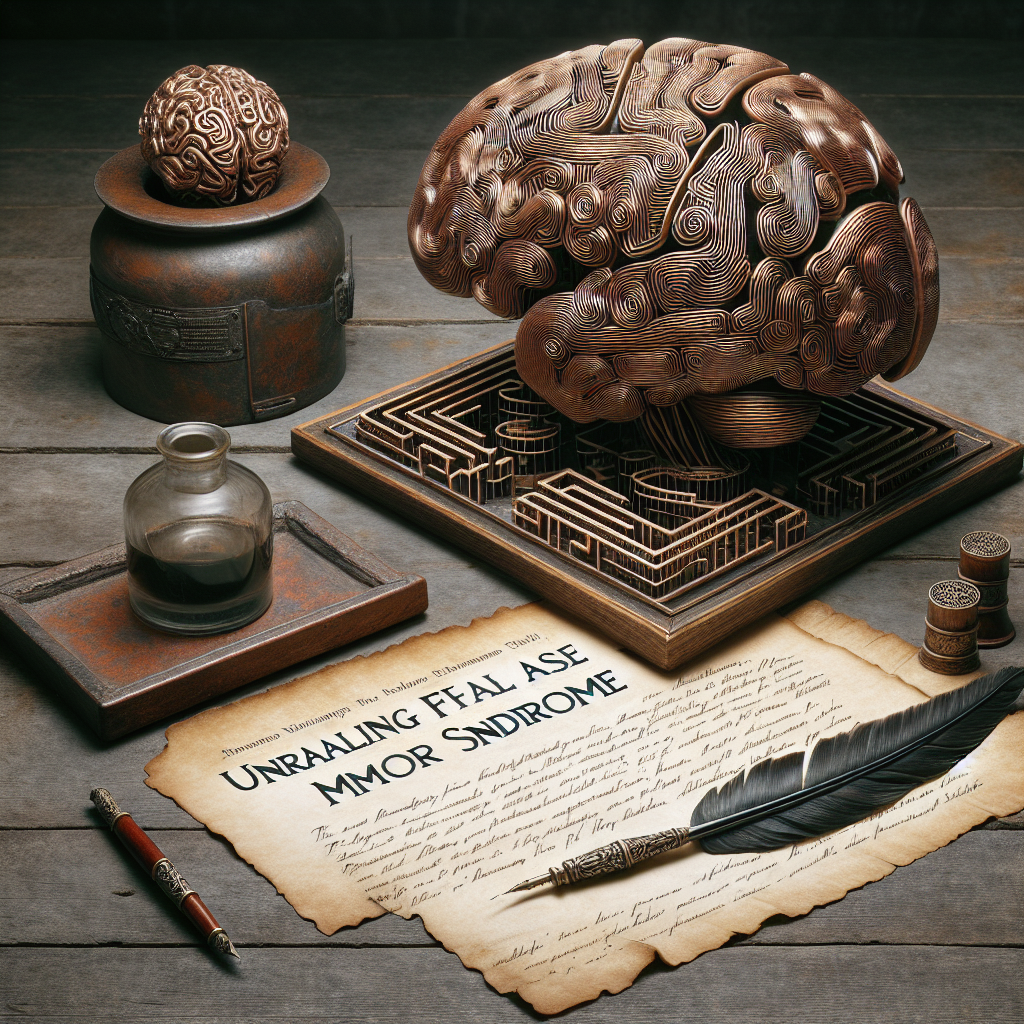
Introduction
Have you ever been convinced of a memory that turned out to be completely false? Perhaps you recall a childhood event that everyone insists never happened, or you might find yourself misremembering someone’s words or actions. These phenomena aren’t just quirks of memory; they’re deeply rooted in the science of psychology. In this article, we dive into Unraveling False Memory Syndrome: The Science Behind False Recollections, exploring its mechanisms, implications, and real-world applications. Understanding this topic isn’t just fascinating—it’s essential in a world where memory shapes our identities, judgments, and legal outcomes.
What is False Memory Syndrome?
False Memory Syndrome refers to the recollection of an event that did not occur, distorted details of an actual event, or a complete fabrication. These memories can be vivid and detailed, making them feel incredibly real. According to research, nearly 70% of people have experienced some form of false memory at least once in their lives.
The phenomenon becomes particularly significant in legal contexts, where eyewitness testimonies can sway court outcomes based on inaccurate recollections. This begs the question: How can memories be so profoundly impactful, yet so easily manipulated?
The Mechanics of Memory Formation
How Memories Are Created
Memories are not static records but dynamic processes. When we experience an event, our brains encode the information through sensory input. This is where attention plays a crucial role—early studies show that memories are formed by integrating sensory details (sights, sounds, etc.) and emotional states during the experience.
Table 1: Stages of Memory Formation
| Stage | Description |
|---|---|
| Encoding | The process of converting experiences into memory. |
| Storage | Retaining information over time. |
| Retrieval | Accessing stored information when needed. |
The Role of Reconstruction
When we recall memories, our brains reconstruct rather than retrieve them. This process can incorporate external information, such as suggestions from others or media, leading to memory distortions. Consequently, our memories blend with new data, creating gaps and inaccuracies.
The Influence of Suggestions
The infamous Loftus and Palmer study illustrates how easily suggestions can alter memories. Participants watched a video of a car accident and were later asked about it using different verbs (e.g., "smashed" vs. "contacted"). Those prompted with "smashed" recalled the event as more severe and even reported seeing broken glass that wasn’t there.
Case Studies in False Memory Syndrome
The "Lost in the Mall" Experiment
One of the most compelling examples, conducted by psychologist Elizabeth Loftus, involved convincing subjects they were lost in a mall as children. Participants were provided with false narratives, and a surprising 25% recalled the invented event as true, demonstrating how easily the mind can construct new memories.
Analysis: This study highlights the malleability of human memory and the ethical implications of therapy techniques relying on recalling repressed memories.
Eyewitness Testimonies
A real-world application of false memory concerns the justice system. Studies show that eyewitnesses are often unreliable. For instance, in the case of mistaken identity, individuals can confidently identify a suspect based on false memories, leading to wrongful convictions.
Analysis: Given the significant societal ramifications, this case emphasizes the necessity for caution in relying on eyewitness testimonies alone in legal settings.
Why Do We Experience False Memories?
The Brain’s Complexity
Our brains are marvels of complexity, but this intricacy also makes them susceptible to errors. Memory is affected by various factors, including:
- Emotions: High-stress situations can lead to altered memories.
- Social Influences: Peer pressure and suggestions can modify recollections.
The Power of Imagination
Imagination plays a potent role in shaping memories. Research suggests that imagining an event can create vivid false memories, blending reality with imagination. Thus, the very act of visualizing an event can lead to a false conviction of its occurrence.
The Impact of False Memories on Society
Legal Implications
The implications of false memory in legal contexts cannot be overstated. Misleading memories can lead to wrongful convictions or acquittals, affecting lives and societal trust in the judicial process. Legal professionals increasingly understand the importance of evaluating eyewitness reliability alongside corroborative evidence.
Psychological Consequences
Experiencing or recalling false memories can also lead to emotional distress. Individuals may grapple with guilt or confusion about their past experiences, leading to anxiety or low self-esteem.
Strategies for Mitigating False Memories
Mindfulness and Reflection
Practicing mindfulness can help individuals become more aware of their thought processes, potentially reducing the likelihood of acquiring and holding onto false memories. Additionally, engaging in reflective practices can enhance memory accuracy.
Legal Safeguards
Courts are becoming increasingly aware of false memory syndrome. Implementing safeguards like corroborative evidence, expert testimonies, and technological solutions (such as DNA evidence) helps to combat the potentially damaging effects of false memories in legal settings.
Conclusion
Unraveling False Memory Syndrome: The Science Behind False Recollections reveals the precariousness of our memories. While memories shape our identities and beliefs, they are also molded by our experiences, emotions, and external suggestions. Understanding the mechanisms and implications of false memories is crucial not only for individuals but for society at large.
By fostering awareness and developing strategies to mitigate memory inaccuracies, we can aim for a future where memories are cherished yet critically examined. Remember, the stories we tell ourselves can greatly influence the narratives of our lives.
FAQs
1. What is the difference between false memories and repressed memories?
Answer: False memories are recollections of events that never occurred or are distorted, while repressed memories refer to the subconscious blocking of painful memories. Both can lead to inaccuracies in recall but originate from different psychological processes.
2. How can you tell if a memory is false?
Answer: Common indicators include inconsistencies with factual evidence or the detailed recall of an event that seems implausible or highly emotional. Asking others who were present about the event can also help clarify discrepancies.
3. Can you trust your own memories?
Answer: While memories can be trusted to some extent, they are not infallible. It’s important to approach personal recollections with a degree of skepticism, especially in high-stakes situations.
4. What role does therapy play in false memory syndrome?
Answer: Therapeutic techniques can sometimes unintentionally implant false memories, particularly when prompting clients to recall repressed memories. Therapists should prioritize methods that minimize suggestion and encourage accurate recollection.
5. Are children more susceptible to false memories?
Answer: Yes, research shows that children are more vulnerable to false memories due to their developing cognitive abilities and increased suggestibility. As a result, it’s crucial to approach child testimonies with caution.
In summary, our understanding of memory continues to evolve, making it more vital than ever to explore topics like Unraveling False Memory Syndrome: The Science Behind False Recollections in greater depth. Embracing this knowledge can empower us to cultivate clarity and accuracy in our experiences and interactions.















